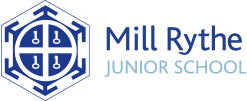Religious Education at MRJS school embraces 2 of our key school rules: be respectful and be safe. The vision for our children is to give them an overview of knowledge for a breadth of religions (Christianity, Judaism, Buddhism, Hinduism, Sikhism and Islamic) and a secular stance (Humanism) so that they can respect the different faiths /religions and humanist lifestyles that they live alongside in their community (a religious festivals day will supplement the curriculum with additional religions focussed on thus enriching their lives further). They will feel safe among a community of difference and will embrace the diverse cultures living around them. Their behaviour will be safe towards themselves and others, having no fear of prejudice or critical judgement.
The religions chosen are based on our school demographic of religions/secular beliefs so the RE curriculum is personalised to the children and their families. We want the children to feel valued but also open their eyes to new faiths and beliefs that they have perhaps not had experience of.
Not only this but the exploration and analytical critique will shape their life and their identity as they form their own beliefs about themselves and the world around them. By analysing religious literature, they will understand how different people interpret ideologies in different ways thus minimising the risk of extremism and ultimately creating a safer world to live freely and happy in.
They will learn about key influential people (such as: Sir Captain Tom Moore,) and key religious figures (such as Jesus, God, Allah etc) and the impact they have and have had on the world and how people’s behaviour changes as a result.
We learn RE through a 5step cycle which allows progression across key skills: Communicate, Apply, Inquire, contextualise and evaluate. The communicate step enables the children to communicate their knowledge and experience already based on the concept studied. The apply step refers to similarities and differences between their personal beliefs on the concept studied and the rest of the class. Inquire refers to: What does this concept actually mean? Contextualise is the step which enables the children to explore the concept through a religion or belief system-what do most people believe about this concept? The evaluate step is the reflective phase where the children consider the importance of the concept to themselves- what is the value of this concept?
During the units their learning is enriched with trips and visits so the children can see first- hand how their concept exists in society. We assess progress through an online tracking tool: Insight. The knowledge assessed refers to 3 types: substantive (subject knowledge), ways of knowing (philosophical questioning) and personal knowledge.

